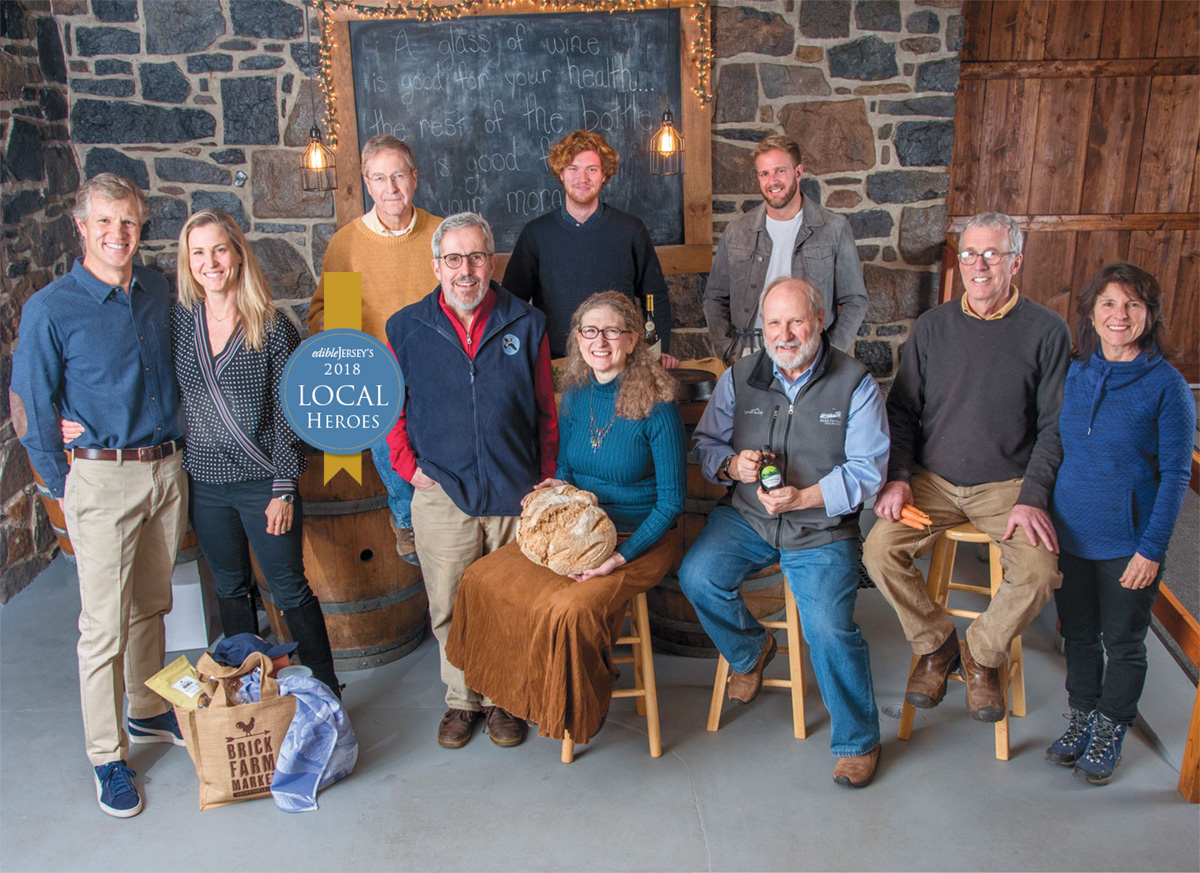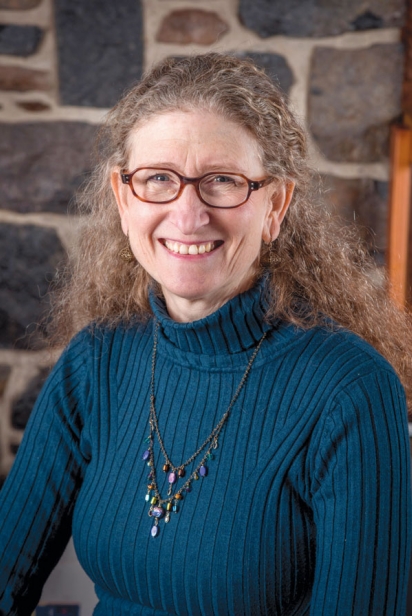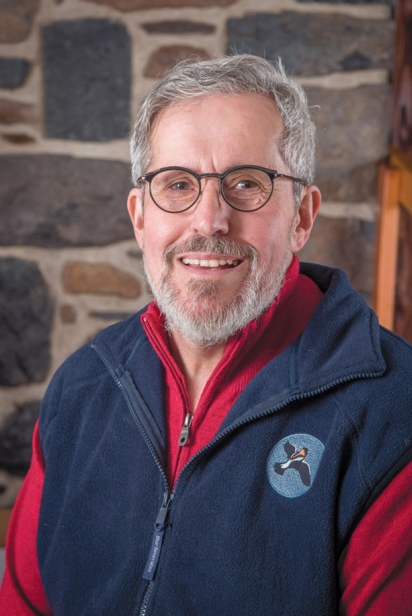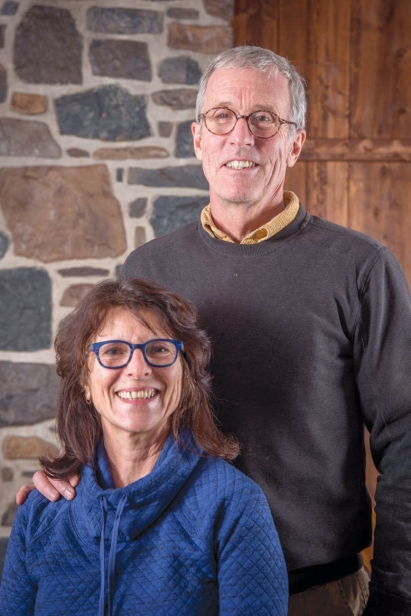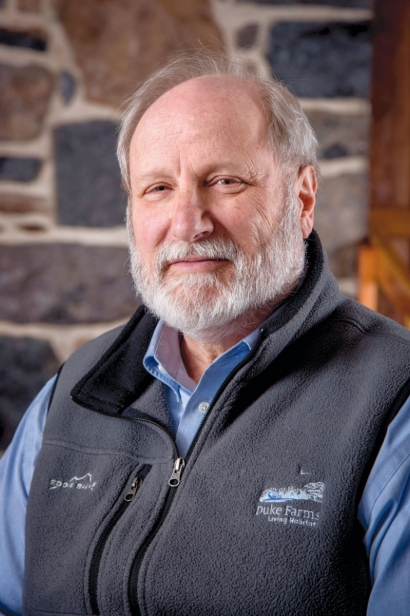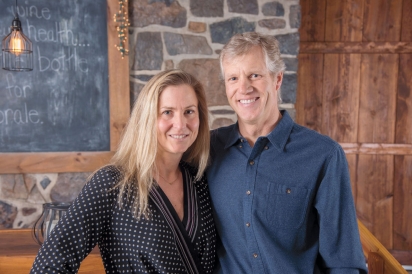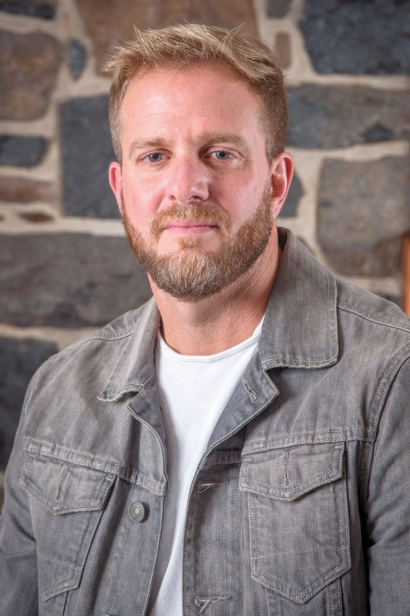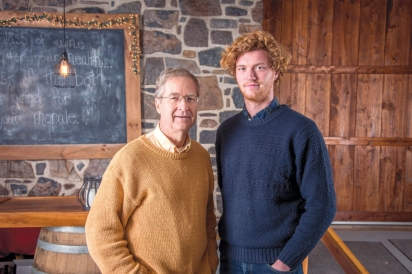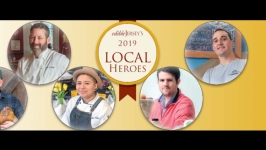2018 Local Heroes
Every year, Edible Communities asks you, our readers, to name Local Heroes in six categories. For this year’s awards, Edible Jersey partnered with our many writers and associates to select nominees—and then you voted. Your picks are celebrated on the following pages. Each winner helps to sustain the healthy bounty that defines and flavors our Garden State.
2018 LOCAL HEROES
FOOD ARTISAN: Bobolink Dairy & Bakehouse
FARMER/FARM: Blue Moon Acres
NON-PROFIT: Duke Farms
FOOD SHOP: Brick Farm Market
CHEF/RESTAURANT: Lucas Manteca, The Red Store
BEVERAGE ARTISAN: Unionville Vineyards
FOOD ARTISAN
Bobolink Dairy & Bakehouse
Jonathan & Nina White
MILFORD
Today, they milk 120 cows and
produce 12 different kinds of 100%
grass-fed artisanal cheese.
A classically trained modern dancer and a software engineer meet in Greenwich Village and they become . . . farmers?
For Jonathan and Nina White, owners of Bobolink Dairy & Bakehouse, it seemed only natural. He hails from Hoboken, she’s from New Rochelle, NY. But both share a deep respect for the land, animals and, as Nina puts it, “really good food.”
By the time they met, Jonathan already had a passion for cheese, having moved abroad for his job. “I went from Hoboken, where there were three colors of cheese, to England, where there were 40 distinct varieties in my local market.”
Jonathan began making cheese in Westchester County, NY, and was nominated to the American Cheese Society in the early 1990s. He served as a cheese consultant, showing established farmers how to transform their farms, teaching gentleman farmers how to run a farm and helping nonprofits establish a sustainable means of income. He traveled extensively; in Tibet, he taught cheesemaking to nomadic yak herders.
The Whites fled the suburbs for a farm rental in New Jersey, and eventually found their current home, in Milford, which they bought in 2010. Today, they milk 120 cows and produce 12 different kinds of 100% grass-fed artisanal cheese. They converted the barn into a bakery with a wood-burning oven, as well as a shop where they sell the cheese, meat, pork, pastured veal, charcuterie and 20 kinds of rustic wood-fired breads made from heritage grains and pastries. Jonathan tends to the charcuterie and cheeses while Nina runs the bakery. Bobolink’s products are available at their farm store and also online, as well as at farmers’ markets and a growing list of fine restaurants around the state.
“People say to us, ‘You’re a farmer, you can’t ever take a day off.’ And I say, ‘I haven’t worked in years,’” says Jonathan. Nina echoes that sentiment. “What’s my job? To play with dough and pick some tomatoes?” The farm life has certainly changed their lives.
“We’ve changed a lot of people’s lives, too,” says Nina.
BOBOLINK DAIRY & BAKEHOUSE
369 Stamets Rd., Milford
cowsoutside.com
908.864.7277
FARMER/FARM
Blue Moon Acres
Jim & Kathy Lyons
PENNINGTON
“We want to grow
nutritionally dense,
quality food, and do
as little damage to
the planet while we’re
doing it.”
Many top restaurants in Philadelphia and New York carry products from Blue Moon Acres in Pennington.
“We started with a single account in New York,” says Kathy Lyons, who owns the farm along with her husband, Jim. Interest in the Lyons’ quality produce grew quickly among clients by word-of-mouth. In the beginning, the farm’s microgreens were driving much of the business. Today, the farm produces vegetables, lettuce, medicinal herbs and now rice.
Maintaining a farm is hard work, but for this couple it also involves constant research. Corporate farming practices often deplete the soil; the Lyons are always looking for new ways to protect it. Within the last two years, Blue Moon Acres has adopted a no-till method.
“Jim is very innovative,” says Kathy. “He even invented some of the equipment we needed to make these changes.”
Blue Moon Acres is geothermally heated and cooled, and operates on solar power alone.
Innovation is what sparked their recent product, organic brown rice, which has attracted considerable media attention. Blue Moon Acres is the only farm in New Jersey—and one of a handful of farms in the country—eschewing traditional paddies and employing an upland style of growing rice. “Rice grown paddy-style has a big problem with heavy metals,” explains Kathy. In paddies, rice absorbs impurities from the water. Rice grown upland-style avoids that issue.
Blue Moon Farms offers six varieties of rice, including sushi rice, long-grain brown rice and the farm’s Black and Tan. “Traditional rice is husked immediately after harvest, but that leads to oxidization and turns the rice rancid. We husk it right before it’s sold, so it retains that really good flavor.”
For Jim and Kathy, who met while studying the macrobiotic diet and lifestyle, it’s about quality. “We want to grow nutritionally dense, quality food, and do as little damage to the planet while we’re doing it.”
BLUE MOON ACRES
11 Willow Creek Dr., Pennington
bluemoonacres.com
609.737.8333
NON-PROFIT
Duke Farms
HILLSBOROUGH
“Duke Farms is a model of
environmental stewardship,
and our mission is to help our
visitors become better stewards
of the environment.”
The 2,742 acres of Duke Farms are so many different things to so many people. Duke Farms is a park, a wildlife sanctuary, a community farm, a place to shop for fresh produce and artisan products, a café and an education center. It’s a long list for a place that began life as the private estate of the Duke family, whose fortune was built on electricity and tobacco. Following the death of Doris Duke, the estate was opened to the public in 2012.
“Duke Farms is a model of environmental stewardship, and our mission is to help our visitors become better stewards of the environment,” says Michael Catania, executive director.
Duke Farms accomplishes that through a variety of methods, from classes and demonstrations to opportunities for getting your hands dirty in the soil.
“We offer 462 acres of community gardens and invite area residents to raise produce,” Catania says. Residents who participate give back by donating their time and by sharing their bounty. Duke Farms, says Catania, donated more than 2 tons of produce to local food banks last year.
“Many people just come here for our café,” says Catania. (The café is a 4-star Certified Green Restaurant.) All the produce is local, the products are recycled and the leftovers are composted. Duke Farms runs a year-round market as well as a seasonal farmers’ market just off the café. The café is inside the visitors’ center, the 100-year-old stone barn, which is LEED certified.
On the estate, 1,000 acres are open to the public. There are 18 miles of walking trails and a bike share program. The property is a popular spot for birdwatchers, and Duke Farms maintains an Eagle Cam, a webcam next to a bald eagle nest. “It’s popular with the public, since you can watch the resident bald eagles raising their chicks.”
Festivals at the farm celebrate everything from maple syrup to fireflies; for youth and children, there are junior naturalist programs and summer classes. Duke Farms offers a robust program of educational sessions covering everything from recycling and green building to gardening.
“There is always something going on here,” says Catania.
DUKE FARMS
112 Dukes Parkway W., Hillsborough
dukefarms.org
908.722.3700
FOOD SHOP
BRICK FARM MARKET
Jon & Robin McConaughy
HOPEWELL
“We know what it
takes to make these
products, and we value
our local producers.
Most of the products
we sell are sourced
within ten miles, and
each one has a story.”
Michael Pollan has nothing to do with Brick Farm Market, and yet he has everything to do with it.
One of Pollan’s articles planted a seed for Robin McConaughy, who owns the market with her husband, Jon. The McConaughys were then splitting their time between New Jersey and Manhattan, but decided to take the plunge and buy a farm in 2003. They dove in, spending six years completing projects on the farm, and soon took in an orphan Angus cow.
“We thought it would be fun . . . let our kids bottle-feed the cow,” says Robin. “But the cow grew up.” When they decided to take the cow to slaughter, and asked friends if they wanted a share, everyone said yes. “We knew then there was a demand.”
That experience led to a herd, and eventually a mini-empire of sustainable food businesses, which includes Double Brook Farm, Brick Farm Market and the Brick Farm Tavern.
The market, which opened in 2013, was designed not only as an outlet for meat from the farm, but also as a solid representation of products from passionate food people, says Jon. “We select products that are raised right—with respect for the animals and the land,” he says. “We know what it takes to make these products, and we value our local producers. Most of the products we sell are sourced within ten miles, and each one has a story.”
The McConaughy mission to be a sustainable part of the community extends to the market itself, which, in the 1930s, was a Chevrolet dealership. Instead of knocking down the building, the couple chose to go the adaptive reuse route, says Jon. Old radiators have new life as a base for the upstairs bar, while the oval signs hanging behind the bakery are repurposed windows.
In the market, customers stop for coffee and pastry in the morning, sandwiches at lunch and take-home items. Brick Farm brings together the butcher, the baker and the cheesemonger.
“We find that 20% of our customers come because the products are healthier, but 80% come just because the space is cool and the food just tastes really good.”
BRICK FARM MARKET
65 E. Broad St., Hopewell
brickfarmmarket.com
609.466.6500
CHEF/RESTAURANT
Lucas Manteca, The Red Store
CAPE MAY POINT
“I cook honest food—
maybe a turnip with butter
and a little bit of sea salt.
So simple, but just
amazing.”
“When I grew up, food was really important. We celebrated around food, and eating farm-to-table was just the way you did it.”
Buenos Aires—born chef Lucas Manteca, chef and owner of The Red Store, isn’t just motivated by good food. It’s his raison d’être. “I’ve been cooking since I was 15.”
Manteca studied hotel and restaurant management in Argentina before setting off on a journey that was equal parts endless summer and moveable feast for this surf-loving chef. In Costa Rica, he met his wife, a New Jersey native. The two returned to the States, settling in New York City so Manteca could attend the French Culinary Institute. Manteca spent time in the kitchens of many Michelin-starred restaurants and world class chefs, from Alain Ducasse and Jean-Georges Vongerichten to Dan Barber, but he missed the ocean.
“My wife was from Avalon, so we decided to spend a summer at the Shore.”
They never left.
Manteca opened a series of restaurants, including Sea Salt and Quahog’s Seafood Shack, and worked in Cape May’s Ebbitt Room before finding the perfect spot, The Red Store.
“It was in the middle of nowhere. This little country store across from a gorgeous park and surrounded by the beach. It was perfect.”
He opened in 2011, first serving breakfast and lunch. “I wanted to do something different . . . pancakes stuffed with crab, poblano pepper and corn, etc.”
Business grew by word of mouth, and after the first year, he expanded to dinner. Last year, he took dinner in a different direction. “I wanted customers to come and not worry about what they were eating,” he says. He introduced a no-menu chef ‘s tasting, typically eight courses with plenty of surprises. “We’re not just a restaurant. We are offering a food experience.”
Manteca doesn’t deliver precious plates. “Food needs to be fun. I cook honest food—maybe a turnip with butter and a little bit of sea salt. So simple, but just amazing,” he says.
Open May through Labor Day with some weekends during the off-season, The Red Store is cash only and BYOB.
THE RED STORE
500 Cape Ave., Cape May Point
capemaypointredstore.com
609.884.5757
BEVERAGE ARTISAN
Unionville Vineyards
Stephen “Zeke” Johnsen & Conor Quilty
RINGOES
If the passionate staff behind this Ringoes vineyard has anything to do with it, their bottles will be continue to top “best of “ lists in the state—and beyond.
“When people think of East Coast wineries, it would be incredible if they think of us,” says John Cifelli, general manager.
Unionville Vineyards, set in the rolling hills of Hunterdon County, has been named one of Food & Wine’s Top 500 Wineries, among other industry accolades.
“We make good wines that wine lovers love,” says Stephen “Zeke” Johnsen, associate winemaker, who joined Unionville in 1998.
“Making wine is like cooking,” Johnsen says. “It’s a blend of art and science.” Johnsen splits the duties with Conor Quilty, who studied viticulture in college and worked at vineyards in California and Australia before returning to Unionville, where he’d begun at 18. “It’s deeply scientific, but creative,” he echoes.
Both share a deep respect for the grapes and their product, and shepherd their wines with great care. “We want the fruit to express itself and don’t want to manipulate it,” says Johnsen. “It’s like a child,” he says. “You want them to express who they are but help them along the way.”
There are 19 different varieties of grapes grown on Unionville’s 45 acres. The two winemakers note that they work with, not against, the location. “We’re not pushing a style here. People think of American wines and they think of California, but here in New Jersey, our cooler climate is much closer to Europe, especially France,” says Quilty.
Their product is 100% estate grown. “That definitely puts us in the minority of East Coast wineries,” says Cifelli.
“The only way we raise the profile of New Jersey wine and grow respect is by growing it locally,” says Quilty. “We have great soil here,” he says. “Why can’t grape vines be considered the same as tomatoes?”
Their drive isn’t single-minded. “It’s not about getting more people in the door, for us. It’s about raising the profile of New Jersey wines. We want everyone to be better,” says Cifelli.
UNIONVILLE VINEYARDS
9 Rocktown Rd., Ringoes
unionvillevineyards.com
908.788.0400


